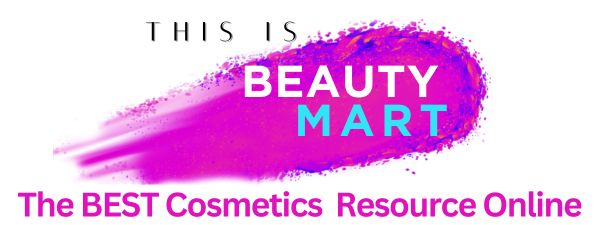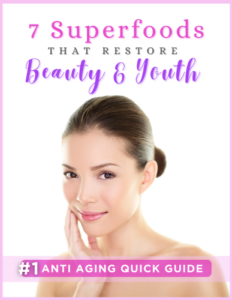Are you aware of what’s really in your everyday soap? Unbeknownst to many consumers, harmful chemicals such as parabens and synthetic fragrances are prevalent ingredients in commercial soaps.
This blog post is a guide to help you be more aware of ingredients in soap to avoid, highlighting those that can be potentially dangerous. Explore with us and make informed decisions for healthier skincare choices!
Key Takeaways
- Glycerin soap made from vegetable oils is a safer alternative to commercial soaps, as it does not contain harmful chemicals.
- Organic soaps made with organic plant-based oils and essential oils provide gentle cleansing without toxic ingredients.
- Look for safe ingredients like glycerin, coconut oil, olive oil, shea butter, essential oils, aloe vera extract,
Table of Contents
6 Harmful Ingredients to Avoid in Soap and Skincare
When it comes to soap and skincare products, there are several harmful ingredients you should avoid at all costs. These include fragrances, parabens, sodium laureth sulfate (SLES), synthetic fragrances, phthalates, and triclosan.
Fragrances
Fragrances in soaps can be deceptive. They’re often comprised of synthetic chemicals, many of which are petroleum-based and pose considerable hazards to human health. Due to loopholes in FDA regulations, companies aren’t always required to disclose all the ingredients used in these fragrances.
Unfortunately, this means hidden toxins may lurk within these pleasant-smelling compounds. Be wary too that synthetically fragranced products can trigger allergies, migraines, or asthma symptoms for some individuals.
Make it a habit to use fragrance-free or naturally scented soaps as much as possible.
Parabens
Parabens are unhealthy ingredients commonly found in commercial soaps and skincare products that you should avoid. These synthetic preservatives can mimic estrogen in the body, potentially disrupting hormonal balance and causing negative effects.
Studies have shown that parabens can be absorbed through the skin and accumulate in the body over time. Some common types of parabens include methylparaben, propylparaben, and butylparaben.
To protect your health, it is important to choose products that are free from parabens and opt for safer alternatives instead.
Sodium Laureth Sulfate (SLES)
Sodium Laureth Sulfate (SLES) is a common ingredient found in many commercial soaps and skincare products. It is used as a foaming agent and surfactant to create that luxurious lather we all love.
However, SLES has been linked to skin irritation and can strip the skin of its natural oils, leaving it dry and prone to damage. Moreover, during the production process, SLES can become contaminated with 1,4-dioxane, a known carcinogen.
To avoid these potential risks, opt for natural hand soaps that do not contain SLES or other harmful chemicals. Choose safer alternatives that will cleanse your skin without compromising its health and well-being.
Synthetic Fragrances
Synthetic fragrances are commonly used in commercial soaps, but they can be harmful to your health. Many synthetic chemicals used in fragrances are petroleum-based and can have negative effects on human health.
These chemicals, such as phthalates, can disrupt hormones and cause allergies or skin irritations. When choosing a soap, it’s important to opt for products that are fragrance-free or use natural essential oils instead of synthetic fragrances.
By avoiding synthetic fragrances, you can protect yourself from potentially harmful chemicals and keep your skin healthy and irritation-free.
Phthalates
Phthalates are a group of chemicals commonly used as plasticizers in many soap and skincare products. These chemicals help to make the products more flexible and fragrant. However, research has shown that phthalates can disrupt hormone function, potentially leading to reproductive problems and developmental issues.
They have also been linked to allergic reactions and skin irritations. To ensure your safety, it is important to choose phthalate-free soaps and skincare products that use natural alternatives instead.
Triclosan
Triclosan is a dangerous ingredient commonly found in soaps and skincare products that you should avoid. It is an antibacterial agent that has been linked to hormonal disruption and antibiotic resistance.
Triclosan can also harm the environment when it enters water systems, affecting aquatic life. The FDA has banned triclosan in hand soaps, but it may still be present in other beauty products.
To ensure your safety and well-being, always check ingredient labels and choose products that are free from triclosan.
The Dangers of These Ingredients
Many of the ingredients found in commercial soaps can actually be harmful to your health. Parabens, which are commonly used as preservatives, have been shown to mimic estrogen and may disrupt hormone function in the body.
Chemicals like sodium laureth sulfate (SLES) and triclosan have been linked to skin irritation and sensitization, while synthetic fragrances often contain hidden toxic ingredients that can potentially harm your health.
It’s important to be cautious when choosing soap and skincare products, as these harmful ingredients can have negative effects on both your well-being and the environment. Opting for all-natural alternatives is a safer choice for maintaining healthy skin without exposing yourself to unnecessary risks.
2 Natural and Safer Alternatives to Commercial Soaps
Glycerin soap and organic soaps are great alternatives that you should consider. They are made from natural ingredients, making them safer for your skin. To know more about these safe options, keep reading!
Glycerin soap
Glycerin soap is a natural and effective alternative to commercial soaps that often contain harmful ingredients. Unlike regular soaps, glycerin soap is made from vegetable oils and does not contain synthetic fragrances, parabens, or sodium laureth sulfate (SLES).
It is gentle on the skin and helps to retain moisture, making it suitable for all skin types. Glycerin soap also has antimicrobial properties that can help cleanse the skin without stripping away its natural oils.
Look for glycerin soap with organic ingredients for an even safer option.
Organic soaps
Organic soaps are a great alternative to commercial options that often contain harmful ingredients. These natural soaps are made with organic plant-based oils and essential oils, providing a gentle and nourishing cleansing experience for your skin.
Unlike synthetic fragrances found in many commercial soaps, organic soaps use essential oils for fragrance, which have therapeutic benefits and won’t irritate your skin. By choosing organic soaps, you can avoid toxic chemicals like parabens, sodium laureth sulfate (SLES), and phthalates that can be harmful to both your health and the environment.
Treat your skin to the goodness of nature with organic soaps that keep you feeling clean, refreshed, and worry-free about any hidden harmful ingredients.
Ingredients to look for in safe soaps
Look for safe and all-natural soaps that do not contain harmful ingredients. Some ingredients to look for include:
- Glycerin: A natural humectant that helps to moisturize and soften the skin.
- Coconut oil: Provides nourishment and hydration to the skin, leaving it feeling soft and smooth.
- Olive oil: Contains antioxidants that help to protect the skin from damage and keep it looking healthy.
- Shea butter: Helps to moisturize and heal dry, damaged skin with its rich emollient properties.
- Essential oils: Natural fragrances derived from plants, which can add a pleasant scent without the use of synthetic chemicals.
- Aloe vera: Known for its soothing properties, aloe vera can help to calm irritated or inflamed skin.
- Calendula extract: Has anti-inflammatory properties and can promote healing of the skin.
- Chamomile extract: Known for its calming effects, chamomile can help to soothe sensitive or irritated skin.
- Vitamin E: Provides antioxidant protection and helps to nourish and rejuvenate the skin.
- Oatmeal: Can provide gentle exfoliation and soothe dry, itchy skin.
How to Choose a Toxic-Chemical Free Hand Soap
When choosing a toxic-chemical free hand soap, carefully check the ingredient labels and avoid products that contain harmful ingredients.
Checking ingredient labels
To ensure that you are choosing a safe and non-toxic hand soap, it is essential to carefully check the ingredient labels. Look out for harmful ingredients such as fragrances, parabens, and sodium laureth sulfate (SLES).
These can have negative effects on both your health and the environment. By being vigilant about reading labels and avoiding products with these toxic chemicals, you can make well-informed decisions about the soaps you use.
Remember to prioritize all-natural alternatives that do not contain these harmful ingredients for a healthier skincare routine.
5 Tips to avoid products with harmful ingredients
To make sure you’re using safe and healthy skincare products, it’s important to avoid products that contain harmful ingredients. Here are some tips to help you avoid these products:
Read the ingredient labels carefully: Look for products that have a clear list of ingredients and avoid those that contain parabens, sodium laureth sulfate (SLES), synthetic fragrances, and other toxic chemicals.
Choose natural and organic options: Opt for soaps that are made with natural ingredients like glycerin or organic oils. These types of soaps are less likely to contain harmful chemicals.
Research the brand: Take the time to research the brand before purchasing their product. Look for brands that prioritize transparency and use safe, non-toxic ingredients in their formulations.
Look for certifications: Look for certifications such as USDA Organic or Leaping Bunny, which indicate that the product has been verified as safe and free from harmful substances.
Consider fragrance-free options: Fragrances in skincare products often contain hidden toxic ingredients, so choosing fragrance-free options can help reduce your exposure to harmful chemicals.
Conclusion | Ingredients in Soap to Avoid
In conclusion, being aware of the ingredients in soap and understanding which ones to avoid is essential for maintaining healthy skincare. By steering clear of harmful substances like fragrances, parabens, and sodium laureth sulfate (SLES), you can make smarter choices when selecting a hand soap.
Opting for natural alternatives that do not contain these toxic chemicals will ensure that your skin stays safe and nourished. Start reading those labels and prioritize your health with chemical-free soap options!
FAQs
1. What are some harmful ingredients in soap to avoid?
There are several unhealthy ingredients in commercial soaps, such as dangerous substances and toxic chemicals, that you should avoid.
2. Can fragrance in soap be harmful?
Yes, certain types of fragrances used in soap can be part of the list of unsafe ingredients. They can cause allergic reactions in some people.
3. Are there alternatives to chemical-laden soaps?
Absolutely! You can choose nontoxic soap alternatives or chemical-free hand soaps made with natural hand soap ingredients for a healthier option.
4. How do I know if a bar soap has harmful additives?
Always check the ingredients list on the packaging of bar soap and steer clear from those containing known harmful chemicals or ones that have been noted as potentially dangerous.
5. Are all industrial chemicals bad for skin health?
Not all industrial components are unsafe; however, it’s best to stay away from those identified as toxic elements and go for good chemicals instead when choosing your skincare products.
6.What effects could come from using soaps with undesirable elements?
Using such products might lead to harmful effects like skin irritation or more complex issues due to their chronic exposure effect.



